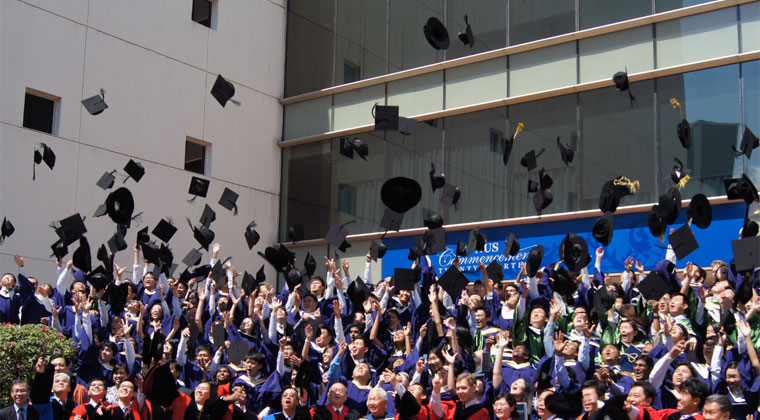The mainstream media in Singapore were having quite a field day parsing the findings and reporting on the latest Graduate Employment Survey.
The question is: Did you read all of the reports? Or most?
To help you navigate this increasingly fragmented media landscape each serving its own dose of truth, here are the survey news by The Straits Times, Today and The New Paper ranked according to how optimistic or pessimistic the reports were framed.
This is to help readers pick and choose what news they want to consume to reaffirm their own beliefs about the economy and remain in their own filtered bubbles, without being molested by contrary views.
Optimistic vs pessimistic
Supplementary article: Fresh grads in computing see biggest salary jump
See also: Most grads find jobs in 6 months
Supplementary article: One year, 50 applications before he gets first job
Background about graduate employment survey
This joint graduate employment survey is by Nanyang Technological University (NTU), National University of Singapore (NUS) and Singapore Management University (SMU). It was released on Feb. 22, 2017.
A total of 10,904 of the 13,953 fresh graduates from the three universities last year were polled for the annual survey.
How to read this news
A compare and contrast between the three mainstream media sources reveal Today to be the most critical with more contextual reporting provided.
Today highlighted that the survey showed this latest batch of fresh grads who landed permanent full-time jobs within six months of graduation was actually the lowest ever since the survey was first carried out for the 2012 cohort:
2016: 80.2 percent
2015: 83.1 percent
2014: 82.7 percent
2013: 89.3 percent
2012: 85.6 percent
Before 2016, the previous low was in 2014 at 82.7 percent.
This fact was buried lower in the ST article, which was quicker to highlight the overall sexier figure of "89.7 percent", which referred to graduates landing a job, even though it was not full-time employment:
... and slightly more of them landed a job within six months of finishing their final examinations.
[...]
Also, 89.7 per cent landed a job within six months of finishing their exams, compared with 89.5 per cent in the previous year.
Median salaries up, but not as much
Moreover, even though median starting salaries grew, the growth is lesser than before, another point brought up by Today.
The median starting pay for fresh graduates in full-time employment grew by S$60 to S$3,360 last year, a 1.8 percent increase.
This is slower in comparison to the class of 2015 that drew S$3,300, up S$100, or 3 percent more than that of the previous cohort.
But how much slower is considered too slow?
A bit of digging from past articles show that graduate starting salaries are perhaps indeed stagnating.
Two years ago, it was reported by Channel News Asia in February 2015 that the median gross salaries saw a 4.91 percent increase to S$3,200 in 2014, from the year before.
Moreover, another interesting point to note is that all graduates from the three universities drew median starting salaries that are comparable.
SMU drew the highest median salary of S$3,500, an increase from the S$3,300 in 2015. The employment figure was 93.8 percent
At NUS and NTU, the employment figure was about 90 percent, with their graduates earning a median salary of S$3,400 and S$3,300 respectively
How to interpret the survey according to the ministry
Last but not least, Today reached out to the Ministry of Education for comment on how to interpret this latest survey.
Today reported:
Commenting on the figures, a Ministry of Education spokesperson said many factors that influence the employment rate of graduates, such as changes in the labour market or economic conditions. Despite the dip in full-time permanent employment, the overall employment rates remain healthy for graduates, said the spokesperson, adding the ministry will continue to monitor the situation closely.
Since you're here, how about another article?
The official Mothership stand on the eternal debate: Books vs Movies
These are the things property agents shouldn’t be doing when they represent you
Top photo via
If you like what you read, follow us on Facebook and Twitter to get the latest updates.
If you like what you read, follow us on Facebook, Instagram, Twitter and Telegram to get the latest updates.
